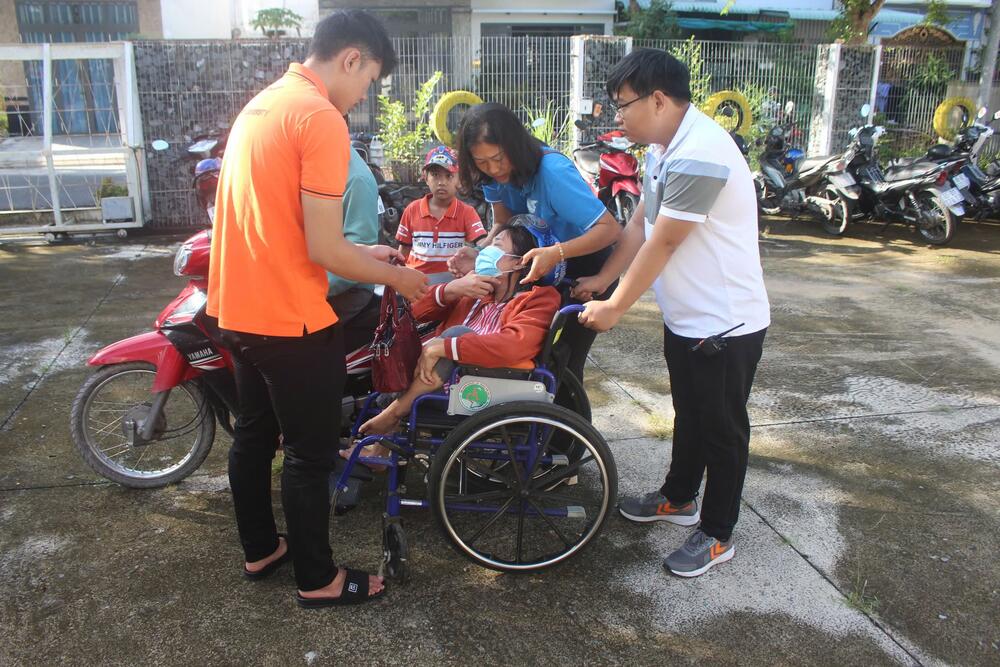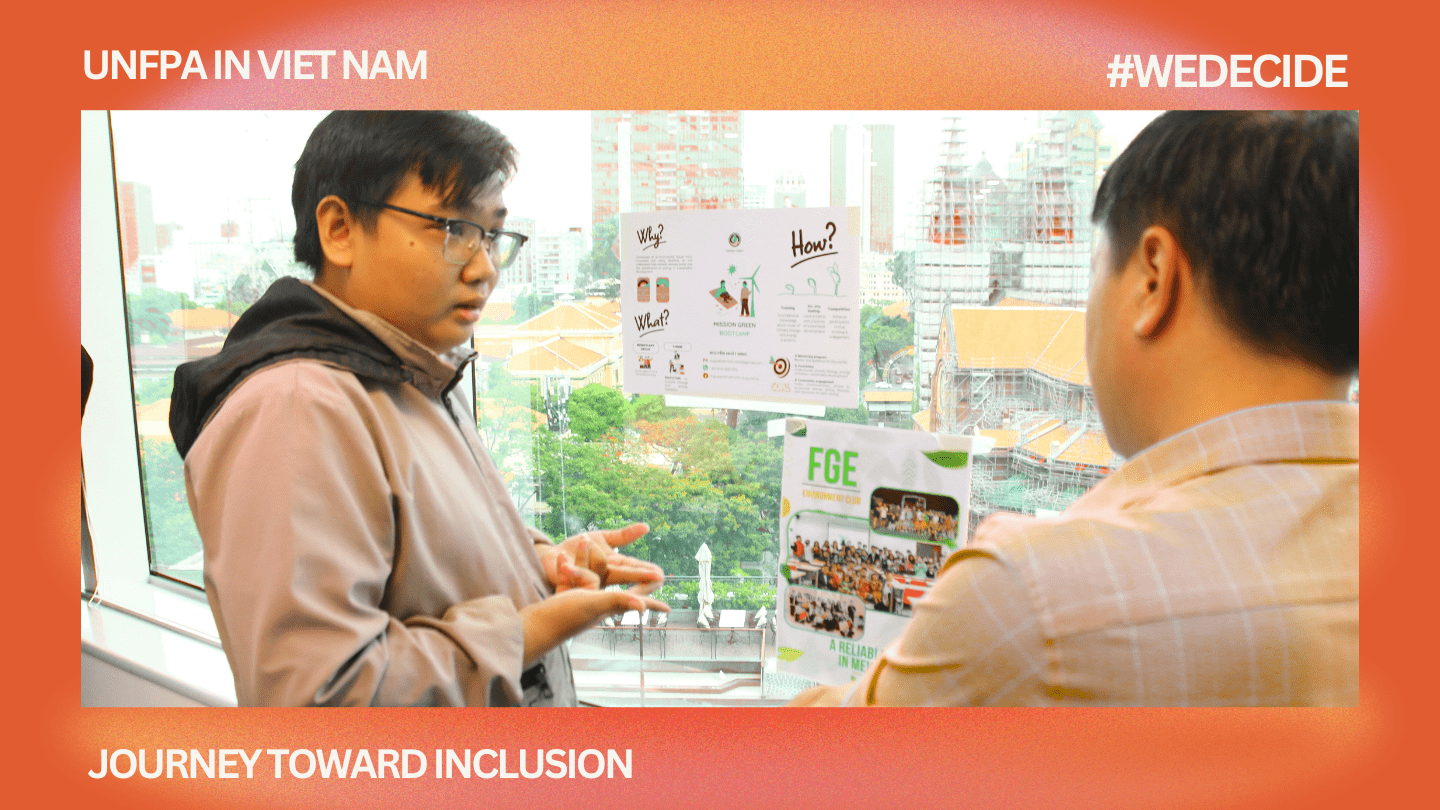“I Used to Be Afraid”: Nhân Quí’s Journey Toward Inclusion
When Nhân Quí first volunteered at the Disabled Chess Tournament, he had no idea what lay ahead—not just tactical moves on the chessboard, but life lessons that would stir his heart, shift his worldview, and ultimately reshape his future.
“I used to be afraid,” Quí admits, his voice gentle but firm. “During the volunteer training, I was repeatedly told that people with disabilities could be very sensitive. I was scared I’d say the wrong thing, or do too much—or not enough. I didn’t know how to act around them…”
As a second-year student at FPT University, Quí didn’t grow up in an environment with many people with disabilities. Like many young people in Viet Nam, his perception had been shaped by distance, one-sided narratives, and a silence around the injustices people with disabilities endure. At first, he joined the chess tournament as a student interested in social work—but what he received was far more valuable.
“Contrary to all my invisible fears, people with disabilities were full of life,” Quí recalls. “There was one man who had lost both legs in an accident and used a wheelchair. But his laughter lit up the whole room. He looked at me and said, ‘Don’t pity me—I’m a killer chess player.’ That moment woke me up.”
He adds, “There was a steep slope he had to descend, and I panicked, wanting to help because I was scared he might fall. But he waved me off and zoomed down with his wheelchair like it was no big deal.”
What started with one event turned into something more. Quí felt ignited by the energy he found and began actively seeking out spaces to support and advocate for people with disabilities. He joined the “Integration Steps” run in Can Tho—a major sporting event organized by the Disabled People’s Association that brought together more than 2,000 athletes to celebrate strength and perseverance.
“Seeing everyone—men, women, young and old—running, jumping, laughing, and dancing... I realized society often overlooks their power. They’re not just surviving—they’re blooming like vibrant flowers.”
As Quí became more involved, he began to notice deeper gaps. Even with awareness campaigns and events, people with disabilities were often excluded from the very dialogues that shaped their futures.
“I’m from Can Tho, part of the Mekong Delta. Everyone’s talking about climate change, salinization, disasters,” he explains. “But no one’s asking how people with disabilities are adapting—or how they can be part of the solution. I joined a youth climate roundtable, read the Youth Report, but found no mention of people with disabilities.”

In December 2024, Quí submitted a photo to UNFPA’s PhotoVoice contest “The Loving Lenses”, held on the International Day of Persons with Disabilities. The untitled photo was taken on Vietnamese Women’s Day (October 20th) at the Disabled People’s Association in Can Tho.
“Despite heavy rain and a hard-to-reach location, the women still came,” he says. “They showed up for a gender equality training. That really moved me. I realized they have this immense desire to learn and grow—not just to gain knowledge, but to assert their value in society.”
He adds, “Their bright eyes, resilience, and warm smiles are living proof of strength and willpower. They weren’t just there to learn. They came to connect, to share, to be seen. That image wasn’t just beautiful—it carried a message of perseverance and the dream of a more equal life for everyone.”
Today, Quí dreams of launching initiatives to make learning environments more inclusive. But he knows he still has much to learn. “Through my experiences, I’ve realized this: you need to listen deeply, show up with sincerity, and treat everyone with respect.”
“People say youth are the future. But I say—people with disabilities are the future too. We just need to widen the door a little so that everyone can walk through—and lead.”
As the sun sets on another day of classes, projects, and quiet reflection, Nhân Quí sits at his desk, sketching out his next plan: a community campaign to map disability-friendly spaces around his university and hometown. Because to him, inclusion isn’t a one-time event—it’s a way of life.
And in doing so, Nhân Quí isn’t just changing his heart, or the hearts of those around him—his actions are laying the foundation to change the world.


